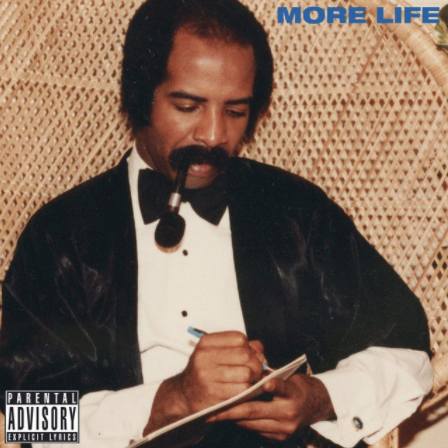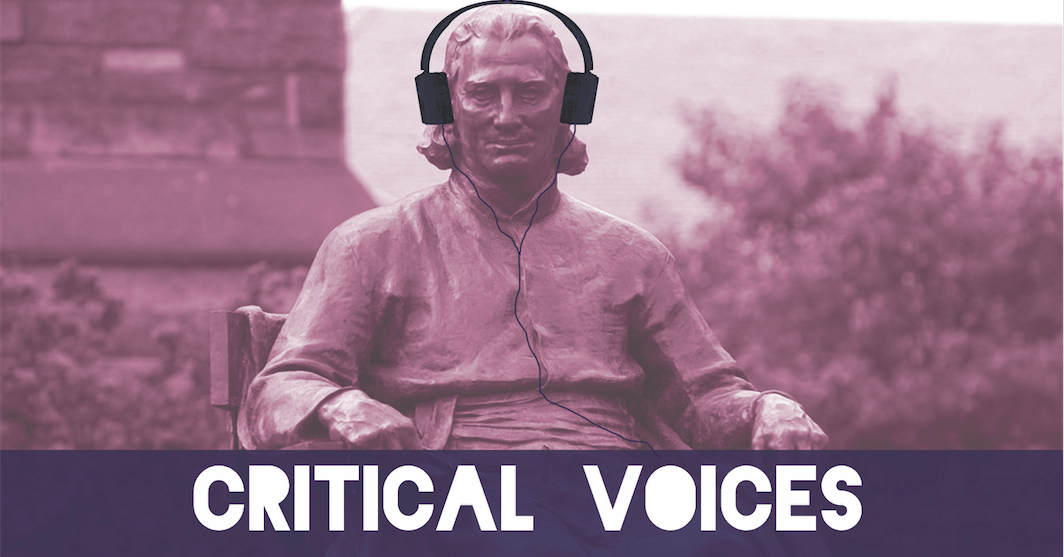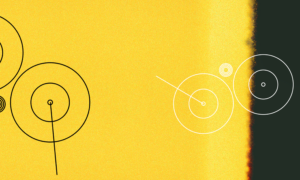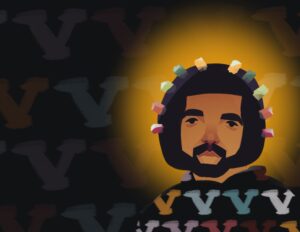More record sales. More streams. More Life. More Everything.
Less than eleven months ago the 6-God released one of the most anticipated projects in the history of rap music, Views. The album, anticipated by many to be his magnum opus, received mixed reviews from fans and critics alike, and left many confused as to what type of rapper Aubrey Graham, better known as Drake, truly is.
With a chip on his shoulder and a Caribbean accent on his tongue, the 30-year old, Toronto-based rapper released his long-awaited project More Life on Saturday’s episode of OVO Sound Radio on Apple Music. The 22-song, 82-minute long playlist is filled with the wide variety of styles Drake has employed throughout his career. From nostalgic, heartbroken confessions to dancehall anthems and bass-knocking bangers, More Life answers the question that Views forced listeners to ask: Drake isn’t a rapper—he’s an undefinable artist.

Photo source: Young Money Entertainment, Cash Money Records, Republic Records
What is most immediately striking about the project is its structure. Drake appropriately dubbed More Life a “playlist,” and for all intents and purposes it is. There is no single theme, narrative, or sound that holds the project together as one would find on a traditional album, such as his sophomore album Take Care (2011). Yet the transitions between each song and placement of two interludes within the tracklist clearly suggest an intentionality behind the song order.
The playlist opens with two of the most speaker-knocking tracks on the project, “Free Smoke” and “No Long Talk.” The former is one of More Life’s strongest performances, as Drake takes shots at Meek Mill, with whom he has been engaged in a very public feud with since 2015. The beat, which is produced by Boi-1da, is filled with loud bass and will generate excitement in every listener. “How you let the kid fightin’ ghost-writin’ lyrics turn you to a ghost?” Drake asks his adversary. He also warns other would-be challengers, saying “I get more satisfaction outta goin’ at your head/and seein’ all of you die/and I seen a lot of you die.” While different in content, “No Long Talk” exudes this same bravado over more hard-knocking basslines. Drake employs a newfound English accent while rapping extremely short and simple bars. This is certainly catchy and sets “No Long Talk” up to be a potential hit, but a terrible performance from Giggs on the song’s second verse diminishes any prospects of greatness.
As “No Long Talk” reaches its outro, the instrumental fades and listeners are left with the voice of Giggs. The dialogue softens the end of the song and segues perfectly into “Passionfruit,” the playlist’s third track. The dialogue also contributes to the feeling that More Life is more a radio show than a playlist, as Giggs has been edited to sound like a caller into a radio station. “Passionfruit” begins the Caribbean-inspired portion of the album, with lush aquatic sounds that create a thoroughly enjoyable listening experience. This song will certainly be featured on every summer playlist.
The project’s next four songs continue this dancehall vibe. “Jorja Interlude” finalizes the transition from hard-rap Drake to Caribbean-Drake, and “Get it Together” utilizes the brilliant vocal performance of Jorja Smith and production talents of 40—Drake’s main producer—to excite listeners. The following two tracks, “Madiba Riddim” and “Blem” are not as enjoyable as “Get it Together” or “Passionfruit,” and make this Caribbean portion of the album feel overdone. One might get the feeling that Drake is using leftover dancehall songs recorded for Views that he just wants to release for sales purposes.
Luckily for listeners, as “Blem” concludes, the beat cuts and Lil Wayne makes an a capella appearance. “Good morning, good afternoon, goodnight! I’m here to talk about More Life. One second,” Wayne says. He then sparks his blunt, a signature Weezy sound, as the track concludes and “4422” begins. “4422,” which is sung completely by longtime Drake collaborator Sampha, focuses on the theme of forgiveness found in the Bible verse Isaiah 44:22. As seasoned Drake listeners are well aware, the artist has made his struggle with the burden of fame clear in his music. The song’s closing lines, “I know I fear trust/I know I fear too much/On my plate, lookin’ up/Outer Space, Pearly Gates,” indicate that Drake continues to battle his insecurities.
The next three tracks, which include an interlude from British grime artist Skepta, feature more strong basslines and elevated bravado as Drake reminds listeners that he is at the pinnacle of success. “I know I said I’m top five, but I’m top two/and I’m not two” Drizzy rhymes in his final verse on “Gyalchester.” The final song of this more modern rap portion of the playlist concludes with a single piano note on the outro of “Sacrifices.” The next song, “Nothings into Somethings” immediately opens with a sample of DJ Paul saying “You ever hear some slow tracks, you know what I’m saying? With, like, some pimpin’ to it, or somethin’, That you can relax, pop a top to, or somethin’?” Appropriately, the next section of the playlist predominately features slower, more emotional songs.
“Teenage Fever” certainly stands out in this section. Drake reaches farther into his vocal range than ever before, uses emotion-filled lyrics, and samples Jennifer Lopez’s 1999 hit “If I Had Your Love” for the chorus. The result is one of the project’s most memorable songs. Four songs later, Drake and Kanye West collaborate on “Glow,” discussing their rise in the industry and subsequent adjustment to fame. Although West is not a good vocalist by any stretch of the imagination, the interplay of him and Drake alternatively singing the chorus meshes, making the final product a pleasant surprise.
Shortly after, “Fake Love,” a single which was released last October, the playlist transitions from a softer and slower tempo to a more jovial two songs. The second of these songs, “Ice Melts,” ends with the beat cutting as someone begins to play the piano. A group of men can be heard talking as the song perfectly transitions into the playlist’s concluding track “Do Not Disturb.” As per usual, Drake uses the final song on a project to give listeners a glimpse into his life. This is Drake at his best. The beat, produced by Boi-1da, 40, and Ritter, is the perfect pace for Drake’s cadence, and Drizzy doesn’t fail to deliver lyrically. “Last verse that I gotta do is always like surgery/always tryin’ to let go of anything that’ll burden me/that’s the reason you can feel the tension and the urgency/last chance I get to make sure that you take it personally/take this shit to heart, it’s always executed perfectly,” he rhymes. As the beat fades and the playlist concludes, listeners are left fully satisfied.
This is not to say, however, that More Life is flawless. In fact, it contains many of the flaws that have haunted Drake’s past projects. For instance, Drake continues to allow embarrassingly corny lyrics onto his projects. “I drunk text J-Lo/old number so it bounce back,” he says on “Free Smoke.” (It was reported that he and Jennifer Lopez were dating after this Instagram post). On “KMT,” Giggs ends the song with the cringe-worthy line “Batman, da-na-na-da-na.” 2 Chainz adds to this awkward collection on “Sacrifices” with the line “2 Chainz, I’m a real one/few shows, that’s a mil run/When she bust it down I said, ‘Thanks for givin’ to me’ like a pilgrim.”
The features on the album also leave much to be desired. If Drake was attempting to popularize the London grime scene among his listeners, two lackluster verses from Giggs are certainly not going to convince many fans of its merits. Skepta’s verse on his self-titled interlude is a bit better, but isn’t anything to write home about. Additionally, Young Thug’s verse on “Sacrifices” is average by his standards. This is not to say all of the features disappoint. Jorja Smith impresses on “Get it Together,” as does Sampha on “4422.” Travis Scott also graces the album on “Portland.” His auto-tuned vocals are a welcome variation on the album. Overall, Drake surrenders this project to features more than he has with any prior project, with mixed results.
More Life is not Drake’s best project by any stretch of the imagination. It lacks the cohesion of past projects such as Take Care and Nothing Was The Same (2013). It does, however, rectify the disappointment that followed the release of Views, and further entrenches the 6-God as the best-selling man in rap. The production is, as always, superb and Drake’s variety will satisfy most people. More Life is a very solid project, and will provide many fans enjoyment for some time.
Voice’s Choices: “Do Not Disturb,” “Teenage Fever,” “Passionfruit,” “Free Smoke”







